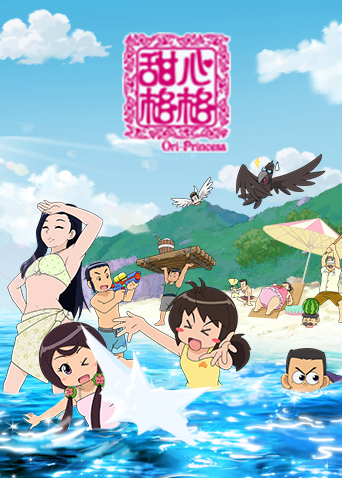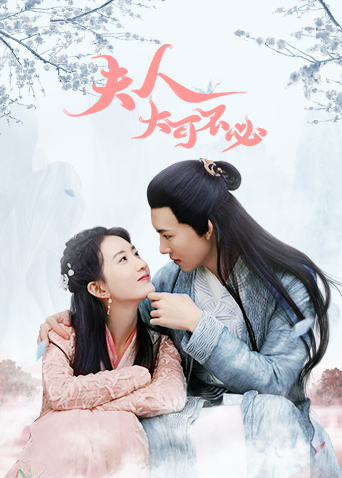故事讲述了农村女孩肖大成不 甘于接受思想守旧的父母对自己人生的安排,市川大学毕 业后留在城市打拼并准备继续考研,市川奋发图强改变自 身命运。她从一个毫无存在感的小员工经历了生活与 工作的挫折与困苦,最终凭借自身的努力奋斗,蜕变 成为职场精英并收获自己的爱情的故事。同时通过描 写肖大成来自重男轻女的农村传统思想家庭中父母观 念的转变,也关注着时代的发展与进步。本片围绕当 代现实生活的平凡点滴展开,向平凡生活中每一位普通奋斗者致敬。

故事讲述了农村女孩肖大成不 甘于接受思想守旧的父母对自己人生的安排,市川大学毕 业后留在城市打拼并准备继续考研,市川奋发图强改变自 身命运。她从一个毫无存在感的小员工经历了生活与 工作的挫折与困苦,最终凭借自身的努力奋斗,蜕变 成为职场精英并收获自己的爱情的故事。同时通过描 写肖大成来自重男轻女的农村传统思想家庭中父母观 念的转变,也关注着时代的发展与进步。本片围绕当 代现实生活的平凡点滴展开,向平凡生活中每一位普通奋斗者致敬。

回复 :在一场赌拳派对后,富二代姜灼正准备向女友田琳告白,却被闷棍致死,在没有看清凶手的弥留之际,无意中穿越。在未来时空发现女友田琳有了新男友,怒火中烧,返回过去,寻找真凶。姜灼“闪现”技能加身,持枪威胁,安装窃听,只为确定凶手,然而直到再次回到被害瞬间,才发现凶手是自己最想不到的人,是心甘情愿还是绝地反击?
回复 :1978年,鲍振江在开封市戏曲学校学戏毕业,学校的毕业汇演剧目是《包龙图》,就在毕业汇演之前,他最好的朋友金宏腿脚受伤不能上场演出了。40年后,鲍振江、李易祥一起踏上去往美国之路,和当年戏校同学一起在美国时代广场唱起了当年的《包龙图》。陈山靠开一家祖传的牛肉汤店为生。店铺不大,只有两位伙计,位置又在小巷深处。大部分顾客主要都是周围的老街坊。牛肉汤口味纯正,深受顾客喜欢。陈山和自己的儿子陈青峰有着很深的隔阂,在儿子回家祭奠母亲三周年的时候,父子之间矛盾终于爆发了。因为台风“山竹”过境,去往广州的高铁被取消。30岁还单身的规划设计师张明,被困在出差城市郑州,邂逅了一段意料之外的爱情。
回复 :Somewhere in the remote region, the war ends. In the midst of ruined cities and houses in the streets, in rural hamlets, everywhere where people still live, are children who have lost their homes and parents. Abandoned, hungry, and in rags, defenseless and humiliated, they wander through the world. Hunger drives them. Little streams of orphans merge into a river which rushes forward and submerges everything in its path. The children do not know any feeling; they know only the world of their enemies. They fight, steal, struggle for a mouthful of food, and violence is merely a means to get it. A gang led by Cahoun finds a refuge in an abandoned castle and encounters an old composer who has voluntarily retired into solitude from a world of hatred, treason, and crime. How can they find a common ground, how can they become mutual friends? The castle becomes their hiding place but possibly it will also be their first home which they may organize and must defend. But even for this, the price will be very high.To this simple story, the journalist, writer, poet, scriptwriter, movie director, and film theoretician Béla Balázs applied many years of experience. He and the director Géza Radványi created a work which opened a new postwar chapter in Hungarian film. Surprisingly, this film has not lost any of its impact over the years, especially on a profound philosophical level. That is to say, it is not merely a movie about war; it is not important in what location and in what period of time it takes place. It is a story outside of time about the joyless fate of children who pay dearly for the cruel war games of adults.At the time it was premiered, the movie was enthusiastically received by the critics. The main roles were taken by streetwise boys of a children's group who created their roles improvisationally in close contact with a few professional actors, and in the children's acting their own fresh experience of war's turmoil appears to be reflected. At the same time, their performance fits admirably into the mosaic of a very complex movie language. Balázs's influence revealed itself, above all, in the introductory sequences: an air raid on an amusement park, seen in a montage of dramatic situations evoking the last spasms of war, where, undoubtedly, we discern the influence of classical Soviet cinematography. Shooting, the boy's escape, the locomotive's wheels, the shadows of soldiers with submachine guns, the sound of a whistle—the images are linked together in abrupt sequences in which varying shots and expressive sharp sounds are emphasized. A perfectly planned screenplay avoided all elements of sentimentality, time-worn stereotypes of wronged children, romanticism and cheap simplification. The authors succeeded in bridging the perilous dramatic abyss of the metamorphosis of a children's community. Their telling of the story (the scene of pillaging, the assault on the castle, etc) independently introduced some neorealist elements which, at that time, were being propagated in Italy by De Sica, Rossellini, and other film artists. The rebukes of contemporary critics, who called attention to "formalism for its own sake" have been forgotten. The masterly art of cameraman Barnabás Hegyi gives vitality to the poetic images. His angle shots of the children, his composition of scenes in the castle interior, are a living document of the times, and underline the atmosphere and the characters of the protagonists. The success of the picture was also enhanced by the musical art of composer Dénes Buday who, in tense situations, inserted the theme of the Marseilaise into the movie's structure, as a motive of community unification, as an expression of friendship and the possibility of understanding.Valahol Europaban is the first significant postwar Hungarian film. It originated in a relaxed atmosphere, replete with joy and euphoria, and it includes these elements in order to demonstrate the strength of humanism, tolerance, and friendship. It represents a general condemnation of war anywhere in the world, in any form.


